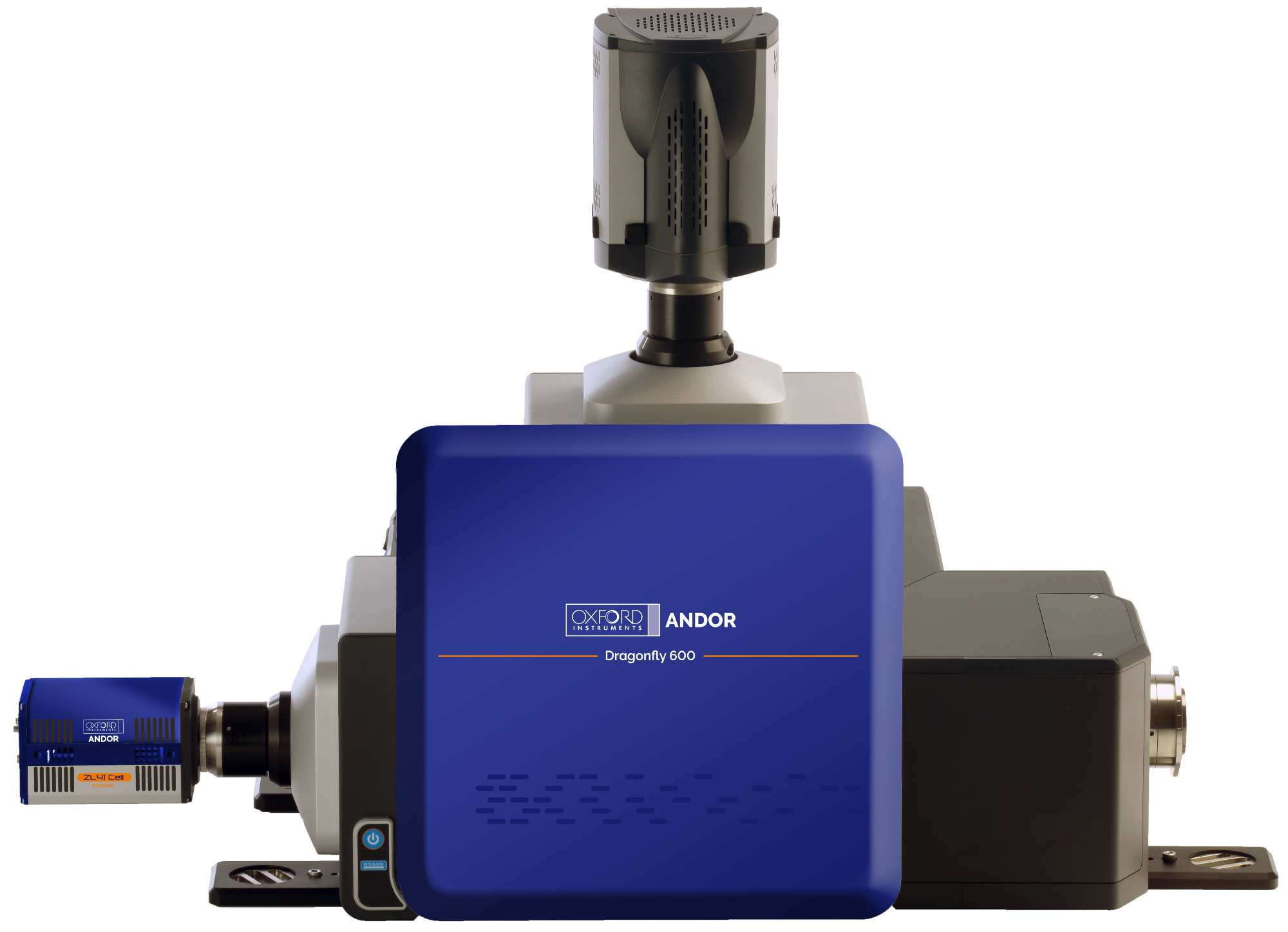Oxford Instruments Andor, a world leader in scientific imaging solutions, has today announced the launch of Dragonfly 600, further strengthening its award-winning confocal microscopy portfolio.

Image Credit: Andor Technology Ltd.
Dragonfly 600 introduces three ground-breaking features; a new total internal reflection fluorescence (TIRF) modality: Borealis TIRF (B-TIRF), a high-power laser engine, and a unique design of 3D Super-Resolution module which retains parfocality across all imaging modes. These technical innovations, combined with innovative software, extend Dragonfly’s capabilities to excel at single molecule localization microscopy, delivering results with nanometer precision.
This new flagship product also maintains the benefits that position Dragonfly as the leading confocal microscope in the market: it is 10 times faster than point scanner confocals, it images very deep into thick organisms, and it allows users to image live specimens for days without phototoxicity or photobleaching.
Deeper imaging. deeper insights. deeper understanding
An increasingly wide range of questions can now be answered using Dragonfly 600. Cancer and neuroscience research are just two important fields that will benefit from this ground-breaking and hugely flexible system. In spatial transcriptomics experiments, the high laser powers help to reduce acquisition times and contribute to high throughput for emerging applications such as mapping brain transcripts or phenotyping cancer gene expression. Cell biologists will be able to uncover the ultrastructural organization of organelles or cellular membranes with resolutions an order of magnitude greater than the diffraction limit of light.
Flexibility and ease of use are enabled through open-source Picasso software, adapted for seamless data exchange, and enabling localizations with nanometer precision. Meaningful statistics and beautifully rendered images are then delivered through Oxford Instruments’ market-leading image analysis software, Imaris 10.0.
The Dragonfly 600 will allow the researchers to access super-resolution microscopy with confocal imaging. It enables cell biologists, developmental biologists, neuroscientists, and other life science researchers to acquire super-resolved images inside thicker tissues, which were not previously possible.
Years of technological development are incorporated into Dragonfly 600, delivering outstanding performance for both academic and industrial users, and enabling a wider range of life science experiments while boosting productivity.
The new B-TIRF modality benefits from highly homogenous illumination and ease of use, delivering high-quality (TIRF) images at non-expert fingertips and avoiding the common TIRF fringe artefacts. Further, this system opens the door to correlative super-resolution microscopy."
Dr. Bernhard Goetze, Oxford Instruments Andor's Strategic Head of Life Sciences for Product Management
Prof. Jeffrey Caplan, Director of Bioimaging and Associate Professor, University of Delaware, who worked with Oxford Instruments Andor on the development of Dragonfly 600, added:
“Dragonfly is super-fast, sensitive, and fantastically flexible. We have about 120 different research groups come through the core facility every year. Having flexibility to switch between different modes and different colors is brilliant for us.
“The system excels at fast, gentle, live cell imaging and 3D single-molecule super resolution, while it is surprisingly good at handling thick samples. In some cases, we can get even deeper than the point scanners, but the fact that Dragonfly is so sensitive allows us to get a better signal-to-noise ratio.”